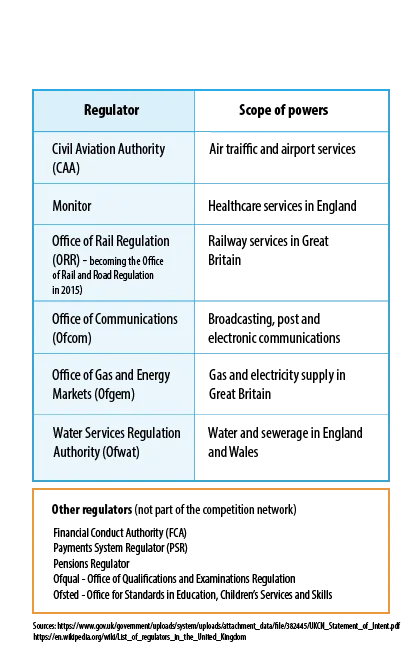
The Competition Network
The Competition Network
As well as establish the UK’s Competition and Markets Authority (CMA) the Enterprise and Regulatory Reform Act 2013 strengthened the powers of the various industry and sector regulators, and, in late 2013, led to the establishment of the UK Competition Network (UKCN).
The role of the UKCN is to act as a forum for increased co-operation between the various regulators, so that there is more consistency in the application of competition law.

A co-ordinated approach towards regulation is likely to help identify ‘opportunities’ to use regulatory powers to promote the effective use of market mechanisms in the sectors covered. This in turn is likely to help improve productivity and build a more dynamic macro-economy.
Of course, UK competition law is closely entwined with that of the EU. This means that Brexit will create challenges for the CMA (and the UKCN), and lead to a review of its role in a Post-Brexit competition environment. This will almost inevitably mean the allocation of more resources to the CMA as it increases its scope of activities, with the possibility of acquiring enhanced powers. This, of course, depends upon whether the UK remains in the ‘single market’ or not, and the nature of an any transitional arrangement.


